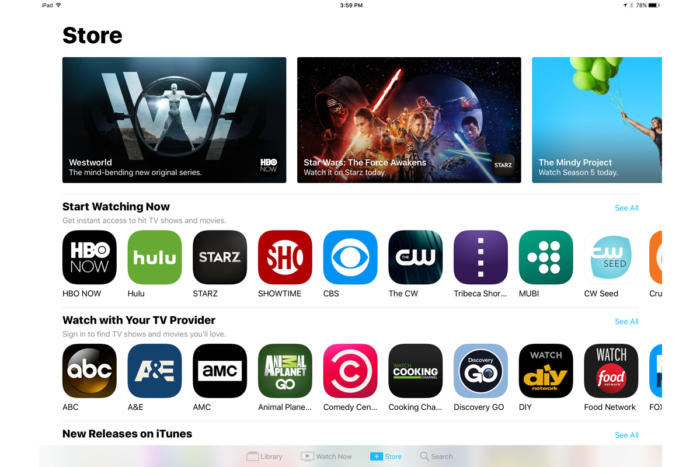Business is war, there is no doubt about that. But in the commerce conflict, small businesses often find themselves fighting an uphill battle, struggling against massive conglomerates and gigantic corporations with bottomless budgets and endless allies. But small businesses, just like small armies, have their advantages. Small businesses are able to mobilize quicker, initiate ideas faster, and provide more rapid turn-around than their large business counterparts.
Part of this is due to the fact that small businesses are notoriously early adopters when it comes to technology. One need only look at the internet and the tremendous success small businesses have had through marketing, distribution, and online sales efforts. While large corporations were still relying on outdated channels, small businesses were making a killing, establishing online reputations and customer databases with their newfound online weapon.
Recent advances in the voice over internet protocol market have given small businesses yet another weapon to use in the battle against corporate giants, Hosted VoIP.
But before we get into hosted VoIP, what exactly is VoIP? More or less, VoIP involves using your internet connection to place and receive phone calls, lowering your telecommunications costs, and often, through the use of VoIP’s advanced features, increasing worker productivity. Hosted VoIP simply outsources the above-mentioned service to a third party.
A recent study conducted by Infonetic Research found that 36% of large companies already use VoIP, but only 14% of small businesses have adopted the solution. It’s clear that small businesses all over the world are discovering the benefits of VoIP, but why aren’t more small businesses adopting the cost-saving technologies larger companies are already using?
So let us examine a hypothetical example, as a small business owner, you understand that new technology has initial expenses, so you decide to go ahead with traditional VoIP. After an intensive installation period, your VoIP is finally installed, new employees have been hired to maintain it, and you are pleased with your service and amazed by its results. A few months go by, and then you are told a new technology has come out and that if it isn’t installed on your VoIP network, the costly solution you have invested so much time and money into, will no longer work. Now you must pay thousands of dollars more, just to get your VoIP to continue to work.
You should be starting to grasp why small businesses aren’t flocking to VoIP solutions, but as mentioned earlier, there is an alternative. Hosted VoIP solutions provide all the cost-saving benefits of VoIP, without the above-mentioned drawbacks.
If you want to get a virtual number for a trial, you can use trial virtual phone numbers from Hottelecom.
With a hosted solution, your business has less upfront costs, plain and simple. You aren’t responsible for any new hardware, or any new hires to maintain the system. As new technology emerges, your hosted provider automatically implements it, saving you time that would have traditionally been spent researching and investing. If a problem occurs in the system or the network goes down, the hosted provider instantly fixes it. You receive all of that, at prices that have often been quoted 50% lower than traditional phone services.
As the knowledge of hosted VoIP services disseminate to small business owners nationwide, ensure your small business isn’t left behind in the commerce conflict. Upgrade your phone system to hosted VoIP today, and stop fighting guns and bullets with bows and arrows.

The VOIP Systems – Equipment for Termination
This new system for transmitting calls has been around since 1995. Now that the quality of service is better and the market for using IP telephone systems is increasing, the Internet will live long to serve us with endless possibilities. Although the price of the equipment for VoIP is still expensive, prices will soon be affordable with competition driving suppliers like Ooma.
We have come a long way with technology. This is evident especially in the communications aspect of our daily lives. From the telephone to the Internet, IP telephone systems are fast becoming the most popular form of voice communication.
One such system is the VOIP or Voice Over Internet Protocol. It is a technology that allows users to make phone calls through the Internet. Voice data is sent through a packet-switched network instead of the circuit switch transmission. The voip systems send signals to set up or terminate calls and then make it possible for people to talk and hear each other online.
VOIP systems are being used by an increasing number of organizations. This is because by using such systems they can utilize their networks more efficiently. Especially for those who transfer a large amount of audio and video data over the Internet, VOIP systems definitely suit their communication needs.
This new system for transmitting calls has been around since 1995. Now that the quality of service is better and the market for using IP telephone systems is increasing, the Internet will live long to serve us with endless possibilities. Although the price of the equipment for VoIP is still expensive, prices will soon be affordable with competition driving suppliers.
When setting up a VOIP system at work, there are certain requirements. First, you must have VoIP equipment. Basically, all you need for a VOIP system is a regular phone, broadband Internet service, an adapter and subscription to a VoIP service. For a VOIP system at the office, there is available specialized VoIP equipment that is user-friendly and can take the hassle off of using the desktop format to make a call.
VOIP systems require equipment for termination. VOIP termination provides a very reliably long-distance connection for carriers using an IP network to terminate an IP-originated call to Public Switched Telephone Network (PSTN). What this does is it enables an enhanced service provider to offer long-distance VoIP access to any residential and commercial customer.
VOIP termination works by transmitting IP-network calls to the plain old telephone service of the PSTN. By converting the voice data from digitized telephony to analog and vice versa, both parties can hear each other more clearly. Long-distance service greatly benefits from this because of the lower rates compared to the landline connections.
Equipment for termination not only requires establishing physical points of presence (POP) in several geographical areas and using them to transfer and terminate calls from VoIP to PSTN networks. It also needs the POP to be equipped with gateways that will receive VoIP calls in the form of data packets, convert them to analog signals and terminate calls locally to the PSTN network.
VOIP systems are fairly new in today’s industry, which is why many still doubt the technology. There are security concerns and those who are still unsatisfied with the quality of the voice transmission. But as technology keeps on improving, we may be surprised at what tomorrow will bring us.














Leave a Reply